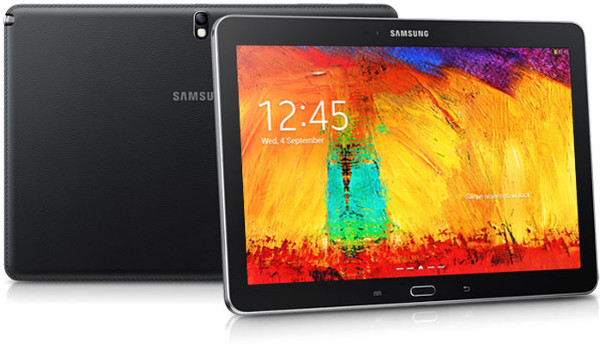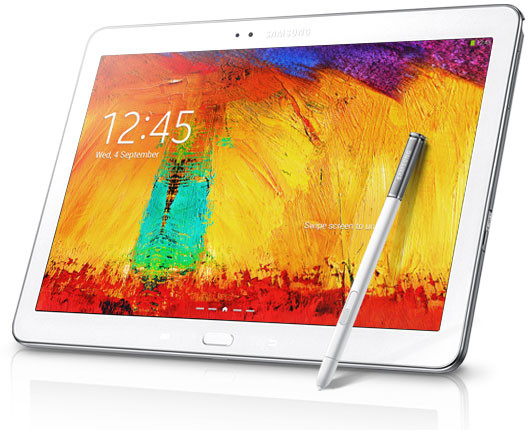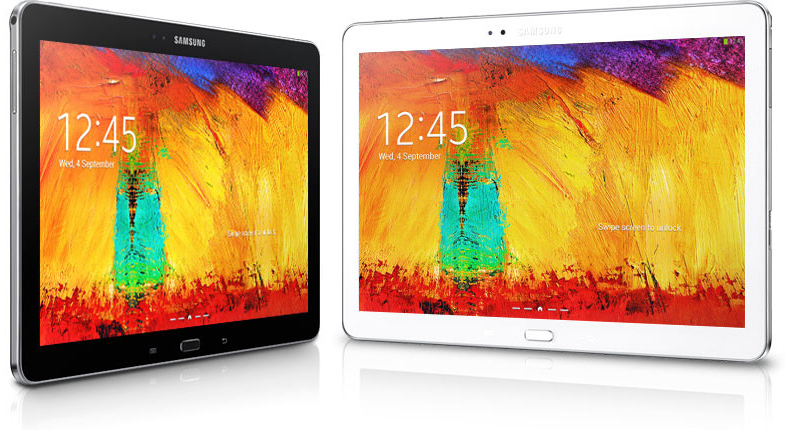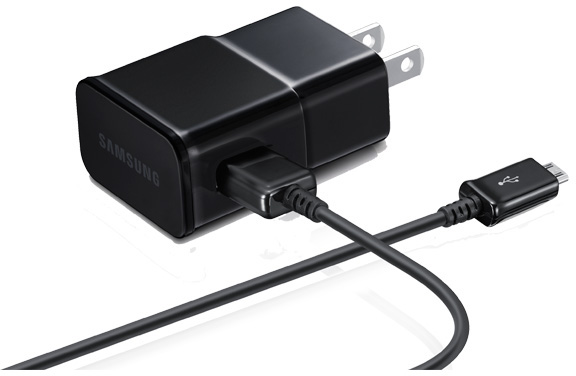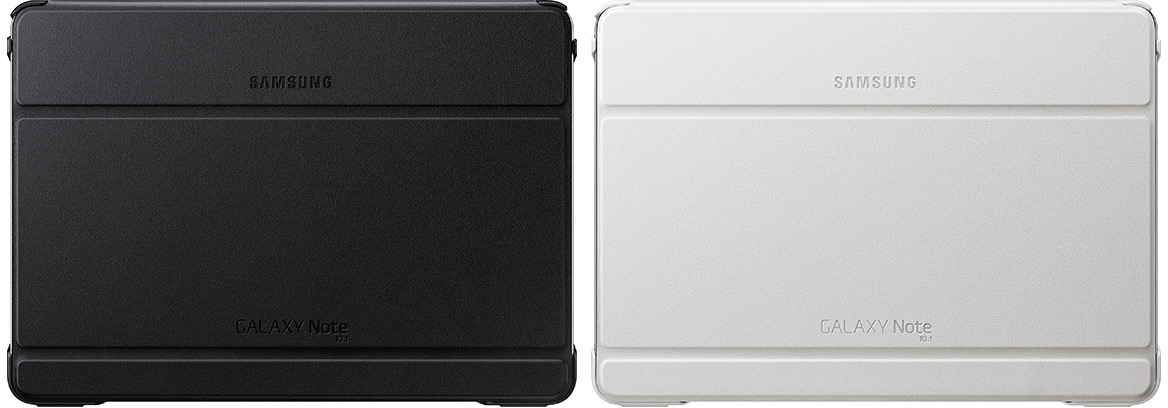Early Verdict
Although it has more powerful hardware than the Wi-Fi model, the Samsung Galaxy Note 10.1 (2014 Edition) LTE's over-sized screen resolution, slow updates, and poor software optimization really show through in the user experience.
Pros
- +
Multi-Window Mode, Screen Resolution, S Pen, Weight
Cons
- -
Bloatware, Price, Responsiveness, Speed, Updates
Why you can trust Tom's Hardware
Samsung's S Pen Attack On The Full-Size Tablet Market
To be perfectly frank, Android isn't having the same impact on the tablet space that it enjoys in the smartphone sphere. Whether due to pricing, marketing, features, or specific apps, outside of the ultra-affordable 7- to 8-inch models, there just aren't many serious offerings with enough allure to upend the iPad.
Samsung, one of Apple's chief competitors in all things mobile, is doing just about everything in its power to change that.
The Galaxy Note 10.1 (2014 Edition) is positioned as Samsung's premium offering in the $500+ 10-inch tablet segment that competes directly with Apple's iPad Air. It sports several key distinguishing features that the company hopes lend it an advantage, though. For instance, its various S Pen capabilities are deeply integrated into almost every aspect of the user experience. Multi Window application capabilities emulate desktop-like multitasking. A chassis redesign takes inspiration from the Galaxy Note 3. And an octo-core processor is intended to serve up strong multimedia, Web browsing and gaming experiences. Finally, an ultra-sharp 2560x1600 display yields one of the highest pixel densities on the market.
We're sure that Samsung would like to use its own SoCs in as many of its mobile devices as possible. Whether the company has issues with scaling to meet demand, or simply isn't able to match the technology built into Qualcomm's product line-up, Exynos-based processors don't power all of Samsung's offerings, though. In the Note 10.1 2014 Wi-Fi model, Samsung showcases its Exynos 5 Octa 5420, which uses ARM's big.LITTLE architecture. Meanwhile, the LTE-capable version sports Qualcomm's Snapdragon 800 AA. Check out Qualcomm Snapdragon 801: Performance Previewed for more information on distinguishing the various Qualcomm SoCs.
Given that both versions of the Note 10.1 are virtually identical on paper, aside from their SoCs, this gives us a good opportunity to compare the Exynos 5's performance to the Snapdragon 800's.
Availability
The Note 10.1 (2014 Edition) is available in a Wi-Fi-only version from many retail outlets (brick-and-mortar stores, as well as online retailers) and also in a 4G LTE-capable version from Verizon. If you omit the region-specific 64 GB version, the Galaxy Note 10.1 (2014 Edition) is available in three variants: 16 GB, 32 GB, and Verizon LTE 32 GB. They'll set you back $550, $600, and $700, respectively.
Options
The Samsung Galaxy Note 10.1 (2014 Edition) comes in either classic white or jet black. Aside from personal preference, color choice is actually quite important with the Note 10.1, since the two versions actually have different finishes.
Get Tom's Hardware's best news and in-depth reviews, straight to your inbox.
The Wi-Fi unit we're reviewing is housed in a white chassis, which has a noticeably slicker finish than our LTE-capable black version. The reason for this is that the white model is more prone to showing dirt compared to the more forgiving black exterior. As a result, it needs to be better at repelling dirt, which the tackier black finish doesn't do. You definitely get more grip from Samsung's black version, which comes in handy on the heavier LTE tablet.
Accessories
The Galaxy Note 10.1 (2014 Edition) comes with a wall charger, USB 2.0 cable, S Pen, additional S Pen tips, removal tool, documentation and warranty information.
Optional accessories for the Galaxy Note 10.1 (2014 Edition) officially sold by Samsung include two folio-style covers (black and white), additional S Pens, and screen protectors.
Current page: Samsung's S Pen Attack On The Full-Size Tablet Market
Next Page Look And Feel-
blackmagnum The only possible way Samsung mobile devices can be a worthwhile alternative to Apple is when they ditch the every-man Android and create their own tightly controlled/ managed OS like Apple. Do that and consumers might not feel like they're just buying the Samsung for the hardware.Reply -
Farrwalker On page 7. Results: CPU Core Benchmarks:Reply
Your bar graph "MobileXPRT 2013" seems to be in error.
For example, the text says, "Note 10.1 (2014 Edition) Wi-Fi leads with 300 points . . ."
but the bar is the shortest and indicates less than 150 points.
-
blueer03 You need to proofread this big time. From page 9:Reply
Samsung's Exynos-based Note 10.1 (2014 Edition) Wi-Fi holds its own against the Tegra Note 7, while the LTE version of the Note 10.1 (2014 Edition) again falls significantly behind its Snapdragon 800-powered Wi-Fi counterpart.
And this happens all throughout. The LTE is a Snapdragon, the Wifi is an Exynos. Keep repeating that to yourself as you re-write the descriptions and it will make this easier to read. -
Kevin Harrelson We got one of these for my son (age 13) to help with his school work. We got it from Best Buy and got the extended warranty. Both sound dumb, but it was actually a good move! The backlight has gone out on this thing TWICE. I happen to think that it is a lovely little tablet, but the backlight is a major reliability issue.Reply -
adamovera ReplyOn page 7. Results: CPU Core Benchmarks:
This benchmark's sub-tests produce scores in seconds (lower is better), and the overall score is given as a typical higher-is-better score, so the lowest bar indicates the fastest completion. Sorry about the confusion, I'll look into other ways to represent this test.
Your bar graph "MobileXPRT 2013" seems to be in error. For example, the text says, "Note 10.1 (2014 Edition) Wi-Fi leads with 300 points . . ." but the bar is the shortest and indicates less than 150 points.
-
adamovera ReplyYou need to proofread this big time. From page 9:
Good catch, thanks! Fixed.
Samsung's Exynos-based Note 10.1 (2014 Edition) Wi-Fi holds its own against the Tegra Note 7, while the LTE version of the Note 10.1 (2014 Edition) again falls significantly behind its Snapdragon 800-powered Wi-Fi counterpart.
And this happens all throughout. The LTE is a Snapdragon, the Wifi is an Exynos. Keep repeating that to yourself as you re-write the descriptions and it will make this easier to read. -
Tomtompiper The 2014 is almost 5 months old and has been superseded by the Amoled screened Galaxy Tab S 10.1 which wipes the floor with the opposition. http://www.gsmarena.com/samsung_galaxy_tab_s_105-review-1097.php Do try to keep up!Reply -
adamovera ReplyThe 2014 is almost 5 months old and has been superseded by the Amoled screened Galaxy Tab S 10.1 which wipes the floor with the opposition. http://www.gsmarena.com/samsung_galaxy_tab_s_105-review-1097.php Do try to keep up!
Actually, you'd think this has been phased out, but it's the current 10-inch Galaxy "Note" product, meaning it has the S Pen. The Galaxy "Tab" S does not - still unclear to me what makes the "S" stand out. I believe Samsung is literally attempting to offer an alternative product to every single other device in existence - complete mobile domination. I lost count of their current "Galaxy" line at 11 products, and that was awhile back.
The duo of Note 10.1 (2014)'s came in very handy both as comparison data in other articles and as testbeds for compiling our benchmark suite. Unfortunately, the article had to be pushed back several times, but the huge hardware difference between products carrying the same name was always something we wanted to illustrate, initially for the chipset-vs-chipset angle, but later for the optimization aspect as well. We're currently working through a small backlog of mobility articles, but each will be more timely than the last. My apologies. -
Blazer1985 I really wish Samsung could help the end user distinguish what they are buying. The 2 Note are classified as "LTE" and "WIFI ONLY" which sounds like 2 equal devices except for the sim card slot while they actually have a totally different soc.Reply -
vaughn2k ... and Samsung prices are now on par with Apple's. others are okay. Will wait for Asus and other competition. Should be cheaper though...Reply
